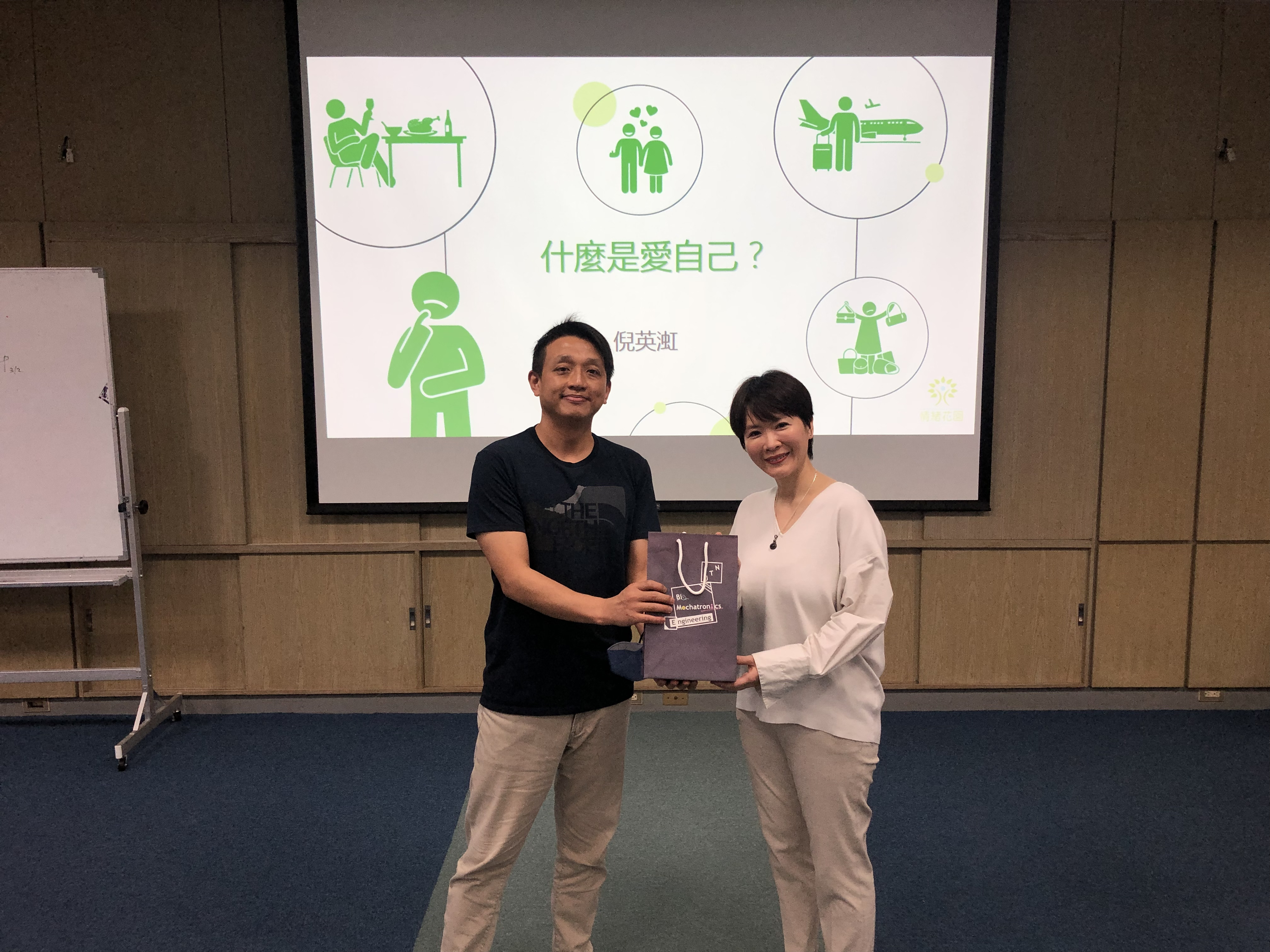
演講分為兩個主要部分,首先講者通過戀愛關係中的互動經驗出發,對照愛的五種語言:誇獎(肯定的語言)、送禮(接受禮物)、擁抱(身體的接觸)、陪伴(精心的時刻)、幫忙(服務的行動)向我們分析我們在從小到大的生活環境中可能愛的語言不匹配而受到情感傷害。若是這樣的創傷劇本和行為模式一再重複,會讓我們習得性忽視、壓抑、迴避和否認自己的情緒感受,進而影響我們對自身身心的覺察和感知,導致我們面對生活上情緒糾結的內耗、不和諧的人際關係以及身體的病痛。講者也通過分享自身的家庭創傷事件和她在對應戀愛關係裡的狀態,向我們舉例陳述創傷事件如何發生,以及其後續影響。通過她後來開拓新的生命劇本的經驗告訴我們覺察自己情緒感受以及對症下藥的重要性。接著,我們分別使用了純淨極光和財運之星兩種身體花晶幫助我們放鬆身體,然後帶領我們聆聽自己的身體及覺察內在需求,引導我們找到自己的內在小孩,通過正視和陪伴創傷經驗,成為內在小孩身邊的支持,實現舒緩身心的療癒效果。
撰寫者:大學部學生 柯姿妤
The speech is divided into two main parts. First, the speaker begins with interactive experiences in romantic relationships and contrasts these with the five love languages: words of affirmation (praise), receiving gifts, physical touch (hugs), quality time (thoughtful moments), and acts of service (helpful actions). This approach is used to analyze how mismatches in love languages from our upbringing can lead to emotional wounds. If such trauma scripts and behavioral patterns are repeatedly enacted, they can lead us to neglect, suppress, avoid, and deny our emotional feelings, thereby affecting our self-awareness and perception of our own physical and mental health. This, in turn, leads to emotional entanglements, disharmony in interpersonal relationships, and physical illnesses in our lives. The speaker also shares personal family trauma events and her states in corresponding romantic relationships to illustrate how trauma occurs and its subsequent impacts. Through her experience of developing a new life script, she highlights the importance of recognizing our emotional feelings and addressing them appropriately.
Following this, we used two types of flower crystals, "Pure Aurora" and "Fortune Star," to help us relax our bodies. Then, we were guided to listen to our bodies and become aware of our inner needs, leading us to discover our inner child. By confronting and accompanying our traumatic experiences, we become a support to our inner child, achieving a therapeutic effect of soothing both mind and body.
Author: Bachelor student, CHEE-YEE , KUAH